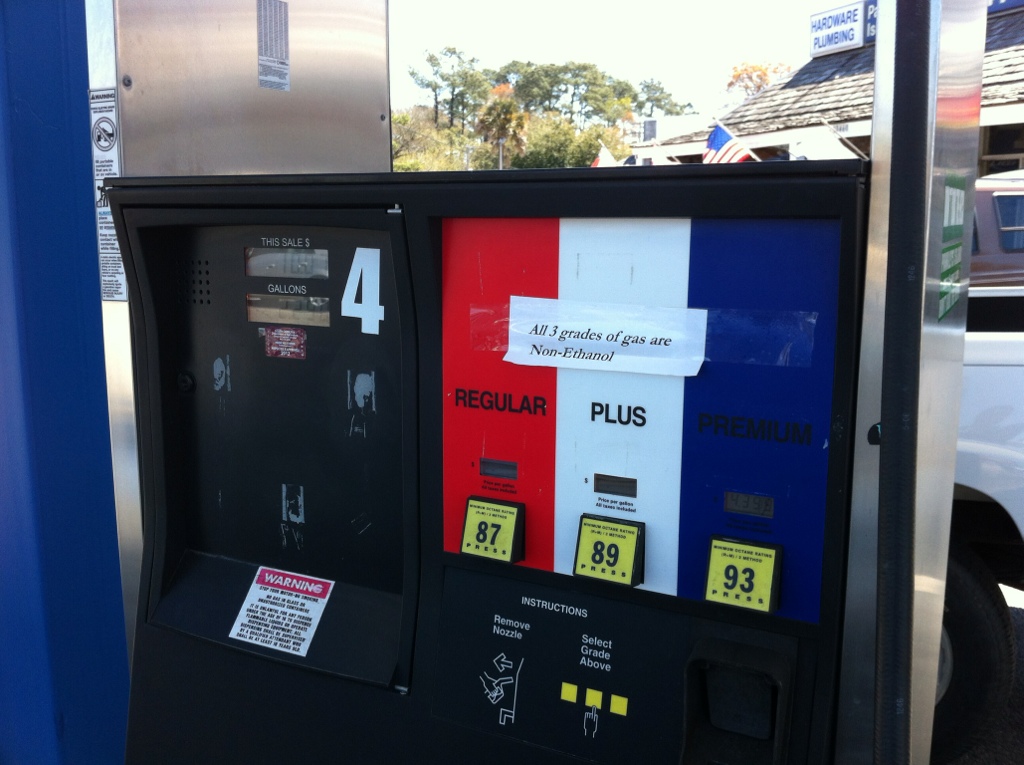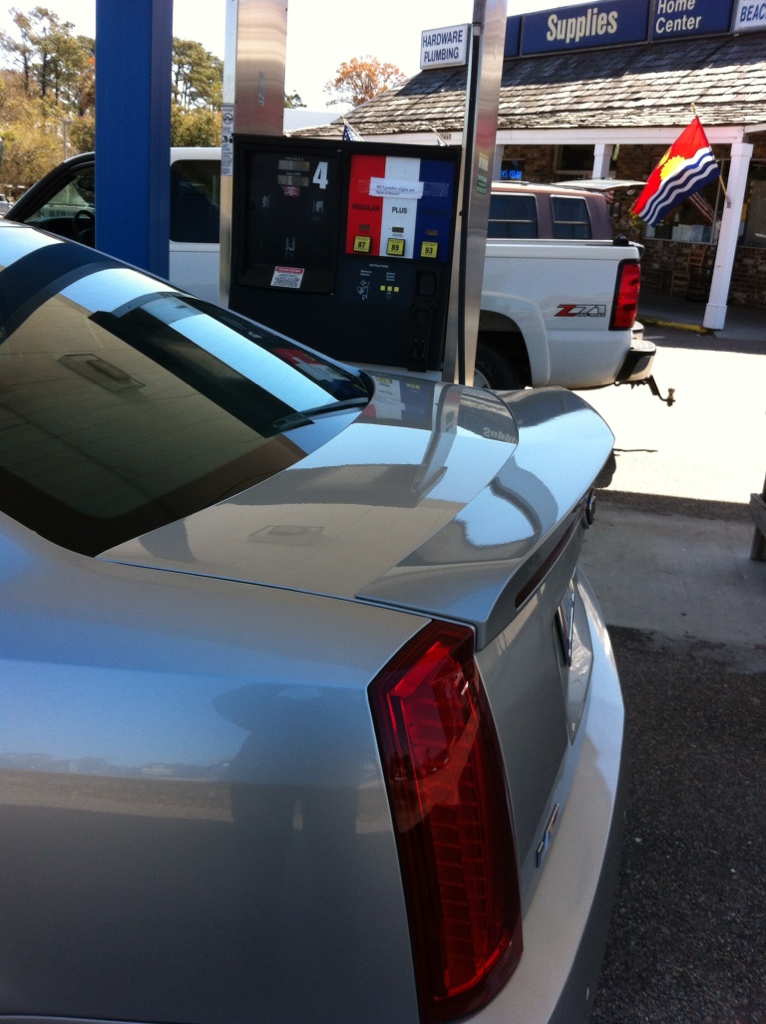My current 2005 Cadillac CTS has a 3.6L V6 and is EPA rated for 16 city and 25 highway MPG using their current measure. For argument sake this yields a mixed-driving target of 19 MPG.
I drive 15,000 miles a year, more or less. So with my 2005 Cadillac CTS I might expect to need 15,000 miles / 19 MPG = 790 gallons of fuel in the next year. The 3.6L CTS uses regular unleaded fuel, so let’s say $2.50 / gallon for a total of $2.50 x 790 gallons = $1,975 in fuel costs.
Here are the replacement performance V-Series cars I am considering: the 469 hp 2008 Cadillac STS-V, or the 400 hp 2007 Cadillac CTS-V.
2008 Cadillac STS-V: EPA rated 13 city 19 highway, 15 MPG combined. With my expected annual mileage of 15,000 miles per year that would mean 15,000 miles / 15 MPG = 1,000 gallons of fuel. Noting that the STS-V however requires premium fuel, which might cost $3.00 / gallon, that makes a total of 1,000 gallons x $3.00 / gallon = $3,000 in fuel costs. So the Cadillac STS-V would cost an extra $1K/year, or $85/month in gas compared to my 2005 Cadillac CTS.
2007 Cadillac CTS-V: EPA rated 14 city 22 highway, 16 MPG combined. It also requires premium fuel. 15,000 miles x 16 MPG = 937 Gallons. 937 Gallons x $3.00/gallon = $2,811 in fuel costs. So that CTS-V would cost an extra $836/year in fuel, or $70/month compared to my 2005 Cadillac CTS.
I plan to keep the next Cadillac for 5 years. Comparing the new cars, STS-V will cost $200/year more than the CTS-V, or $1,000 over the 5 years.
On the other end of the spectrum, the current 2010 Cadillac CTS 3.6L DI V6 engine is rated at 18 city 27 highway for combined 21 mpg. The current 2010 Cadillac CTS 3.0L DI V6 engine is rated at 18 city 28 highway for combined 22 mpg. Either engine can use regular unleaded. So replacing my CTS with the new 2010 Cadillac CTS 3.6L would yield a projected fuel cost of 15,000 miles / 21 MPG x $2.50/gallon = $1,785/year. Although the new 3.6L has more power at 304 hp than the 2005 non-DI 3.6L at 255 hp in my car, the DI engine also gets better MPG, and is boosted by the 6-speed automatic vs 5-speed automatic.
Replacing my CTS with a 6-speed DI 3.6L instead of a 2007 CTS-V or 2008 STS-V model would save $1,026-$1,215/year. However, the CTS DI 3.6L has respectable performance of 0-60 in 6.5 sec, while the 08 STS-V or 07 CTS-V will both accelerate 0-60 in under 5 seconds, out-brake, out-corner, generally out-perform the CTS 3.6L. What cost performance? Besides the initial price of entry, about $100/month in my case. Is that worth the thrill of the added performance potential? Would you pay another $1200 a year to drive a Super car versus a ‘normal’ sport sedan?


